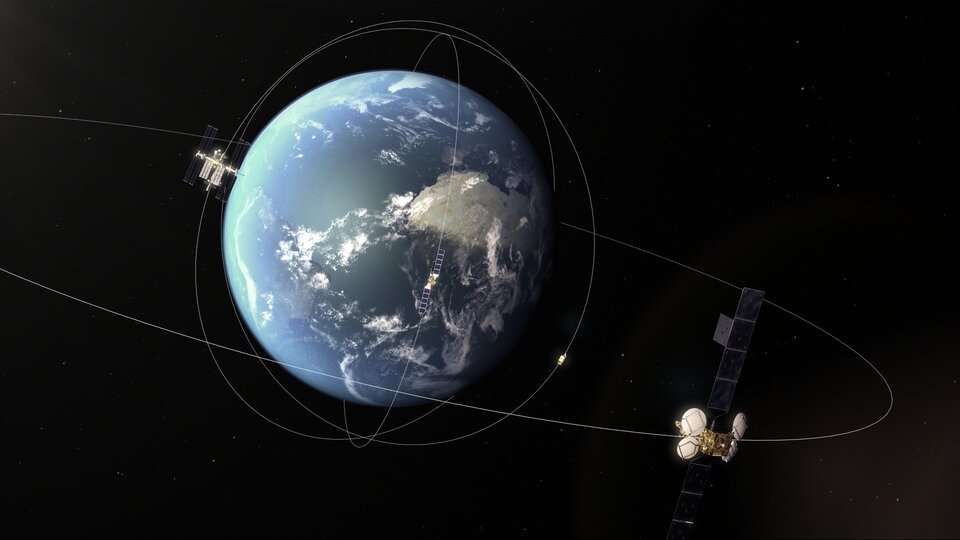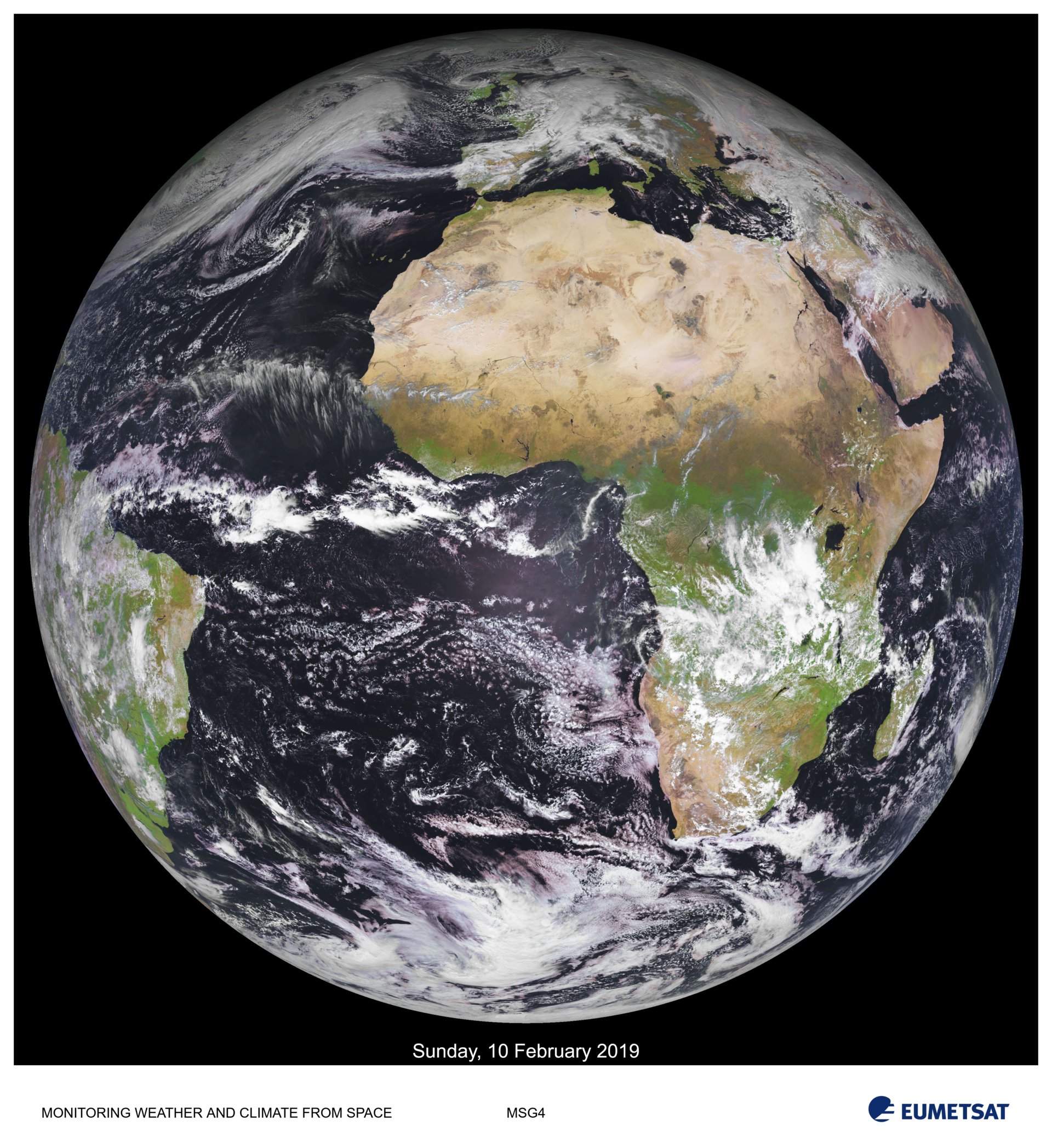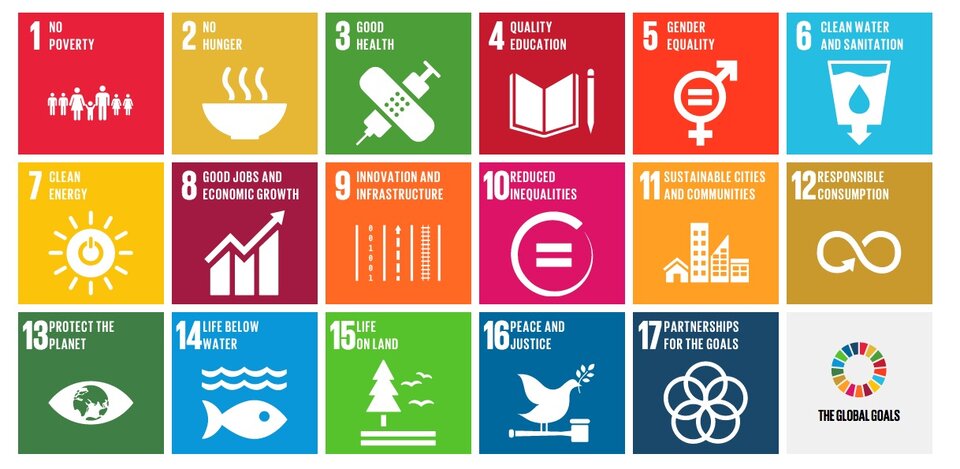Africa Day: ESA targets sustainable development for the African continent
Africa has made considerable progress in improving the living standards and educational levels of its 1.2 billion inhabitants in recent decades. It now boasts one of the fastest-growing economies and an expanding middle class, while many of its people enjoy greater access to health services. Yet more than 40 percent of sub-Saharan Africans still live in extreme poverty and lack the schooling required to find employment.
Each year, Africa Day is celebrated on 25 May to commemorate the founding of the Organisation of African Unity in 1963. This bloc of 32 countries was created to promote independence and unity in the region in place of colonial rule.
In 2002, the African Union became the successor body for all African nations and set out various objectives – including sustainable development and higher living standards – in its Agenda 2063 programme. The European Union cooperates with the African Union in areas such as peace and security, democracy, human rights, development and sustainable economic growth, particularly through science and technology.
ESA contributes to many of these aims through its commitment to the United Nations’ Sustainable Development Goals (SDGs). Almost 30 ESA projects exist to address specific challenges in Africa, including poverty (SDG1), good health and wellbeing (SDG3), quality education (SDG4), decent work and economic growth (SDG8) and sustainable cities and communities (SDG11). Many other projects, not initially targeting Africa, can also be extended to the continent.
With its satellite imagery and technical expertise, the Agency supports a variety of users dedicated to achieving the 17 Sustainable Development Goals. Its online database of related projects is also a valuable information source for this purpose.

Recognising that telecommunications play a major role in African development, ESA has been supporting satellite-based projects that help emerging countries connect with the global community, facilitating employment and economic growth. SatFinAfrica demonstrated the suitability of a specific communications platform to provide financial services, such as money transfers and automated teller machines, to remote areas. It also developed features of the platform to allow African service providers to autonomously manage their customer profiles and to become local virtual operators. The platform used was originally designed for the ongoing initiative SatSoHoAfrica, whose goal is to deliver competitive broadband Internet services to small-office and home-office (SoHo) users, such as farms and tourist lodges in sub-Saharan Africa.
In a region where more than one in five children are deprived of schooling and 20 percent of those unemployed in sub-Saharan countries are young people, education is a top priority for the United Nations and its partners in the quest for sustainable development. ESA supports this goal through its ECO – Every Child Online partnership with the UK satellite network operator Avanti Communications, to bring affordable and reliable Wi-Fi hotspots to low-income users in sub-Saharan Africa. The five-year programme, which addresses seven SDGs, will benefit schools, community centres, Internet cafes and more, and involves pilot services for more than 1400 community sites across six African countries. Similarly, ISIDE 4 Africa – a 16-month programme spun off from the Innovative Satellite Interactive Digital Entertainment (ISIDE) project – provided educational content and Internet access to African schools as well as health and cultural centres. The pilot phase involved six sites in Burkina Faso and the Democratic Republic of Congo.
ESA is also involved in various projects that address long-term issues in Africa, such as ensuring water supplies and managing wetlands. The TIGER initiative has been running since 2002 and uses Earth observation technology, now via the Copernicus Sentinel-1 satellite, to generate geographical information in support of water resource management at a national and regional level. The initiative has helped build capacity and contributed to development projects in at least 40 African countries, reaching more than 150 water authorities and research institutes.
GlobWetland Africa is another ESA-supported project that uses such technology to help conserve and manage African wetlands. Such areas play a key role in nurturing biodiversity and supporting ecosystems. The initiative will help stakeholders meet their obligations in the Ramsar Convention on Wetlands, which was signed in 1971 and involves 170 contracting parties.

Through the technology activities that prepare for future exploration programmes, a water purification system was installed in a school in Morocco to filter polluted groundwater to provide safe drinking water for pupils. This is just one example of an activity designed to support the health of astronauts that is being applied in the African continent. Many other potential activites can be found in the ESA catalogue.
These are just a few instances of ESA’s dedication to sustainable development in Africa, helping to overcome some of the challenges that the region has faced for decades. Through satellite imagery and technical expertise, the Agency is contributing to solutions aimed at eradicating poverty, boosting education and protecting the continent’s natural resources. With the support of such initiatives, Africa can continue along its path to a brighter future.
Whilst ESA puts considerable effort into supporting its Member States, its programmes and activities address challenges faced everywhere on Earth, to support sustainable development for all, in Europe, Africa and elsewhere.



